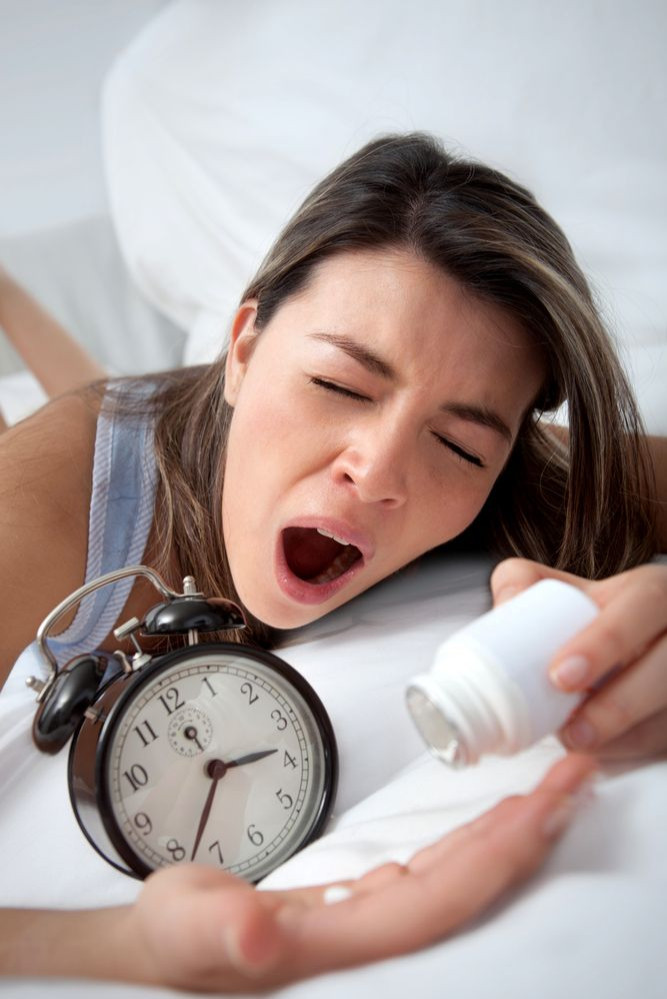Insomnia and High Blood Pressure Unrelated; Sleepless Nights May Not Be Linked To Increased Risk For Condition

People sleeping for five hours or less at night were thought to be at a risk of developing high blood pressure that eventually leads to heart conditions. But new research published in the Journal of Clinical Psychiatry from St. Michael's Hospital, negates this theory, giving new hope to 30 percent or more of adults who suffer from insomnia.
While the effect of insomnia on obesity and diabetes has not been disputed, its link with high blood pressure may have been skewed. According to Dr. Nicholas Vozoris, a respirologist at St. Michael's, previous studies were based on the observations of only a few people and cannot be considered as definitive. In the new research, Dr. Vozoris examined data from nearly 13,000 Americans who participated in the National Health and Nutrition Examination Survey, a series of studies designed to assess the health and nutritional status of adults and children in the United States.
Patients were assessed by physical examinations and interviews. This study was the first to assess hypertension among individuals who reported various insomnia symptoms. Participants were asked about their insomnia symptoms, and their responses were correlated with whether they had doctor-diagnosed hypertension, were taking anti-hypertension drugs, or had measured high blood pressure.
"After adjusting for many factors, including whether or not participants were receiving blood pressure pills or sleeping pills, there were generally no associations between insomnia and high blood pressure, even among people who were suffering from insomnia the most often," Vozoris said. "These results should reassure patients and their doctors that insomnia and high blood pressure are unlikely to be linked."
These findings greatly ease the burden on health care systems for long-term screening of potential development of hypertension, for the millions of Americans who suffer from insomnia. Also, many doctors will no longer feel the need to prescribe sleeping pills as a possible precaution to prevent high blood pressure. Sleeping pills are known to have several side effects like addiction, overdose, car accidents, and falls.
Insomnia is a sleep disorder defined as an inability to fall asleep or sleep for the amount of time that will refresh the body and mind. Getting up in the middle of the night and not going back to sleep or waking up tired and drowsy even after eight hours in bed is a sign of insomnia. It's the most common sleep disorder affecting one in 10 adults in the U.S.
While most cases may be transient, chronic insomnia is thought to affect 50 to 70 million people. Psychological problems like stress or anxiety, medications for cold and flu or antidepressants, medical problems like asthma, chronic pain, Parkinson’s, or kidney diseases can all contribute to insomnia. Chronic insomnia has been thought to have profound impact on human health, increasing the risk of hypertension, diabetes, obesity, depression, heart attack, and stroke.
"Patients who are suffering from insomnia and physicians who are trying to take care of them shouldn't worry so much about insomnia affecting their heart in an adverse way," he said. "By showing there is no link between this very common sleep disorder and high blood pressure, physicians can be more selective when prescribing sleeping pills and refrain from prescribing these medications from a cardio-protective perspective."
While chronic insomnia may require some sort of therapy, acute or short-term insomnia can be treated with some simple lifestyle changes described below.
Source: Vozoris N. New research shows link unlikely between insomnia symptoms and high blood pressure. Journal of Clinical Psychiatry. 2014.



























